











Read More
Faculty of Pharmaceutical Science, AdtU started offering the B. Pharm programme in 2010. Designed to enrich students' basic and advanced knowledge in the Pharmaceutical Science domain, the programme follows the courses mandated by PCI education regulations. The semester-wise course sequence and the entire B. Pharm curricula have been arranged by PCI to provide hands-on training and real-world exposure to traditional and modern practices, making graduates industry-ready. As pharmacists are true drug experts, B. Pharm students are exposed to allied science courses and core pharmaceutical courses, fostering their aptitude for research and advancements in new drug development technologies.
Year wise Course Details
Courses for this semester
This course is designed to impart fundamental knowledge on the preparatory pharmacy with arts and science of preparing the different conventional dosage forms.
This course is designed to impart fundamental knowledge on the preparatory pharmacy with the arts and science of preparing the different conventional dosage forms.
This subject deals with the structure and functions of different parts of the body and their pathological conditions.
This course deals with the components of the living world, structure, and functional system of the plant and animal kingdom.
This subject deals with the monographs of inorganic drugs and pharmaceuticals.
This subject deals with the monographs of inorganic drugs and pharmaceuticals.
This course deals with the fundamentals of analytical chemistry and principles of electrochemical analysis of drugs.
This course deals with the fundamentals of analytical chemistry and principles of electrochemical analysis of drugs.
This subject is designed to impart fundamental knowledge on the structure and functions of the various systems of the human body. It also helps in understanding both homeostatic mechanisms. The subject provides the basic knowledge required to understand the various disciplines of pharmacy.
Practical physiology is complimentary to the theoretical discussions in physiology. Practical's allow the verification of physiological processes discussed in theory classes through experiments on living tissue, intact animals, or normal human beings. This is helpful for developing an insight on the subject.
This is an introductory course in mathematics. This subject deals with the introduction to partial fractions, logarithms, matrices and determinants, analytical geometry, calculus, differential equations, and the Laplace transform.
This course will prepare the young pharmacy student to interact effectively with doctors, nurses, dentists, physiotherapists, and other health workers. At the end of this course, the student will get the soft skills set to work cohesively with the team as a team player and will add value to the pharmaceutical business.
This course will prepare the young pharmacy student to interact effectively with doctors, nurses, dentists, physiotherapists and other health workers. At the end of this course the student will get the soft skills set to work cohesively with the team as a team player and will add value to the pharmaceutical business.
Courses for this semester
This subject is designed to impart fundamental knowledge on the structure and functions of the various systems of the human body. It also helps in understanding bothhomeostatic mechanisms. The subject provides the basic knowledge required to understand the various disciplines of pharmacy.
This subject deals with classification and nomenclature of simple organic compounds, structural isomerism, intermediates forming in reactions, important physical properties, reactions and methods of preparation of these compounds. The syllabus also emphasizes on mechanisms and orientation of reactions.
This subject deals with the introduction Database, Database Management system, computer application in clinical studies and use of databases.
Environmental Sciences is the scientific study of the environmental system and the status of its inherent or induced changes on organisms. It includes not only the study of physical and biological characters of the environment but also the social and cultural factors and the impact of man on environment.
Practical physiology is complimentary to the theoretical discussions in physiology. Practicals allow the verification of physiological processes discussed in theory classes through experiments on living tissue, intact animals or normal human beings. This is helpful for developing an insight on the subject.
Biochemistry deals with complete understanding of the molecular levels of the chemical process associated with living cells. The scope of the subject is providing biochemical facts and the principles to understand metabolism of nutrient molecules in physiological and pathological conditions. It is also emphasizing on genetic organization of mammalian genome and hetero & autocatalytic functions of DNA
Pathophysiology is the study of causes of diseases and reactions of the body to such disease producing causes.This course is designed to impart a thorough knowledge of the relevant aspects of pathology of various conditions with reference to its pharmacological applications, and understanding of basic pathophysiological mechanisms. Hence it will not only help to study the syllabus of pathology, but also to get baseline knowledge required to practice medicine safely, confidently, rationally and effectively
The Pharmaceutical Organic Chemistry - I (Practical) course provides foundational training in the practical aspects of organic chemistry with a focus on pharmaceutical applications. This course introduces students to essential laboratory techniques such as crystallization, distillation, and solvent extraction, along with methods for determining physical constants like melting and boiling points. Students will gain hands-on experience in purification techniques, qualitative analysis of organic compounds, and the preparation of simple organic molecules through synthesis. Emphasis is placed on understanding reaction mechanisms and the structural identification of compounds using chemical methods. By the end of the course, students will have developed critical laboratory skills, enabling them to perform organic chemistry experiments with precision and safety, forming a solid base for advanced studies in pharmaceutical sciences.
The Biochemistry Practical course is designed to provide students with hands-on experience in understanding the biochemical processes that underlie human physiology and drug action. This course emphasizes experimental techniques used in analyzing biomolecules, enzyme activities, and metabolic pathways. Students will conduct laboratory experiments to estimate carbohydrates, proteins, lipids, and vitamins, assess enzyme kinetics, and study the effects of pH and temperature on enzymatic reactions. Additionally, the course covers qualitative and quantitative analysis of body fluids such as urine and blood for clinical biomarkers, offering insights into the biochemical basis of diseases and therapeutic interventions. Through this practical exposure, students develop analytical skills, precision, and a deeper appreciation of the biochemical principles essential for pharmaceutical sciences.
The Computer Applications in Pharmacy (Practical) course equips B. Pharm students with the essential skills to utilize computer technology effectively in pharmaceutical research, development, and practice. This course introduces fundamental concepts of computer hardware, software, and data management, with a focus on pharmaceutical applications. Students will learn to operate software for drug design, data analysis, and simulation studies. Practical sessions include working with MS Office tools for documentation, data organization, and presentation, as well as exploring the use of specialized pharmaceutical software for inventory management, prescription handling, and patient record systems. By the end of the course, students will develop competency in leveraging computational tools to enhance productivity, ensure accuracy, and support decision-making in pharmacy practice.
Courses for this semester
This subject deals with general methods of preparation and reactions of some organic compounds. Reactivity of organic compounds are also studied here. The syllabus emphasizes mechanisms and orientation of reactions. The chemistry of fats and oils is also included in the syllabus.
This subject deals with general methods of preparation and reactions of some organic compounds. Reactivity of organic compounds are also studied here. The syllabus emphasizes on mechanisms and orientation of reactions. The chemistry of fats and oils is also included in the syllabus.
The course deals with the various physical and physicochemical properties, and principles involved in dosage forms/formulations. Theory and practical components of the subject help the student to get a better insight into various areas of formulation research and development, and stability studies of pharmaceutical dosage.
The course deals with the various physical and physicochemical properties, and principles involved in dosage forms/formulations. Theory and practical components of the subject help the student to get a better insight into various areas of formulation research and development, and stability studies of pharmaceutical dosage forms.
This subject deals with the study of all categories of microorganisms, especially for the production of alcohol antibiotics, vaccines, vitamins, enzymes, etc.
This subject deals with the study of all categories of microorganisms, especially for the production of alcohol antibiotics, vaccines, vitamins, enzymes, etc.
This course is designed to impart fundamental knowledge on the art and science of various unit operations used in pharmaceutical industry.
This course is designed to impart fundamental knowledge on the art and science of various unit operations used in the pharmaceutical industry.
Courses for this semester
This subject imparts knowledge on stereo-chemical aspects of organic compounds and organic reactions, important named reactions, chemistry of important hetero cyclic compounds. It also emphasizes on medicinal and other uses of organic compounds.
This subject is designed to impart fundamental knowledge on the structure, chemistry and therapeutic value of drugs. The subject emphasizes on structure activity relationships of drugs, importance of physicochemical properties and metabolism of drugs. The syllabus also emphasizes on chemical synthesis of important drugs under each class.
The course deals with the various physica and physicochemical properties, and principles involved in dosage forms/formulations. Theory and practical components of the subject help the student to get a better insight into various areas of formulation research and development, and stability studies of pharmaceutical dosage forms.
The main purpose of the subject is to understand what drugs do to the living organisms and how their effects can be applied to therapeutics. The subject covers the information about the drugs like, mechanism of action, physiological and biochemical effects (pharmacodynamics) as well as absorption, distribution, metabolism and excretion (pharmacokinetics) along with the adverse effects, clinical uses, interactions, doses, contraindications and routes of administration of different classes of drugs.
The subject involves the fundamentals of Pharmacognosy like scope, classification of crude drugs, their identification and evaluation, phytochemicals present in them and their medicinal properties.
The Medicinal Chemistry – I (Practical) course introduces students to the fundamental laboratory techniques and methods used in the synthesis, purification, and characterization of medicinally active compounds. This course emphasizes the qualitative analysis of organic compounds and the preparation of chemical intermediates relevant to pharmaceutical agents. Students will gain hands-on experience in performing reactions such as esterification, hydrolysis, and oxidation, and in identifying functional groups present in drug molecules. Additionally, the course includes practical exercises to study the physicochemical properties of drugs, their structural elucidation, and the correlation between chemical structure and biological activity. Through this practical training, students will develop essential skills in medicinal chemistry, contributing to their understanding of drug discovery and development processes.
The Physical Pharmaceutics - II (Practical) course is designed to provide B. Pharm students with an in-depth understanding of the physical principles governing the design and evaluation of pharmaceutical dosage forms. This course focuses on experiments related to micromeritics, rheology, surface tension, adsorption, and the stability of emulsions and suspensions. Students will perform laboratory experiments to study the flow properties of powders, particle size distribution, interfacial phenomena, and the stability testing of formulations. Practical sessions also include the application of techniques to determine the shelf life of pharmaceutical products and the evaluation of factors influencing drug stability. By the end of this course, students will acquire hands-on skills and knowledge to apply physical concepts in the formulation and development of stable and effective pharmaceutical products.
The Pharmacology-I (Practical) course provides B. Pharm students with foundational training in experimental pharmacology, focusing on the principles of drug action and pharmacological testing. This course introduces students to laboratory techniques for studying the effects of drugs on biological systems using in vitro and in vivo models. Key experiments include understanding dose-response relationships, determining drug potency, and evaluating the pharmacological effects of autonomic drugs on isolated tissues or organ preparations. Emphasis is also placed on handling laboratory animals ethically, learning anesthetic techniques, and using software-based simulations to demonstrate drug action, reducing the need for animal experiments. By the end of the course, students will gain practical insights into pharmacological concepts, experimental protocols, and the therapeutic relevance of drugs, forming a strong base for advanced pharmacology studies.
The Pharmacognosy and Phytochemistry I (Practical) course introduces students to the fundamental techniques for the identification, extraction, and evaluation of medicinal plants and their phytoconstituents. The course emphasizes the practical aspects of pharmacognosy, including macroscopic and microscopic examination of crude drugs, determination of physical constants, and qualitative analysis of phytochemicals such as alkaloids, flavonoids, glycosides, tannins, and saponins. Students will also learn the preparation of herbarium specimens, extraction techniques, and standardization of crude drugs. By the end of the course, students will develop essential laboratory skills for assessing the quality and authenticity of natural products, contributing to their understanding of the therapeutic potential of plant-derived medicines.
Courses for this semester
This course deals with the influence of pharmaceutical additives and various pharmaceutical dosage forms on the performance of the drug product
This subject is intended to impart the fundamental knowledge on various aspects (classification, mechanism of action, therapeutic effects, clinical uses, side effects and contraindications) of drugs acting on different systems of body and in addition, emphasis on the basic concepts of bioassay.
This course enables the student to understand and appreciate the influence of pharmaceutical additives and various pharmaceutical dosage forms on the performance of the drug product
This subject is designed to impart fundamental knowledge on the structure, chemistry and therapeutic value of drugs. The subject emphasizes on structure activity relationships of drugs, importance of physicochemical properties and metabolism of drugs. The syllabus also emphasizes on chemical synthesis of important drugs under each class.
The main purpose of subject is to impart the students the knowledge of how the secondary metabolites are produced in the crude drugs, how to isolate and identify and produce them industrially. Also this subject involves the study of producing the plants and phytochemicals through plant tissue culture, drug interactions and basic principles of traditional system of medicine
The main purpose of subject is to impart the students the knowledge of how the secondary metabolites are produced in the crude drugs, how to isolate and identify and produce them industrially. Also this subject involves the study of producing the plants and phytochemicals through plant tissue culture, drug interactions and basic principles of traditional system of medicine
This subject is intended to impart the fundamental knowledge on various aspects (classification, mechanism of action, therapeutic effects, clinical uses, side effects and contraindications) of drugs acting on different systems of body and in addition, emphasis on the basic concepts of bioassay.
This course is designed to impart basic knowledge on important legislations related to the profession of pharmacy in India
Courses for this semester
This subject gives the student the knowledge of basic understanding of herbal drug industry, the quality of raw material, guidelines for quality of herbal drugs, herbal cosmetics, natural sweeteners, nutraceutical etc. The subject also emphasizes on Good Manufacturing Practices (GMP), patenting and regulatory issues of herbal drugs
This subject is designed to impart knowledge and skills of Biopharmaceutics and pharmacokinetics and their applications in pharmaceutical development, design of dose and dosage regimen and in solving the problems arised therein.
This course deals with the various aspects of quality control and quality assurance aspects of pharmaceutical industries. It deals with the important aspects like cGMP, QC tests, documentation, quality certifications and regulatory affairs.
This subject is designed to impart fundamental knowledge on the structure, chemistry and therapeutic value of drugs. The subject emphasis on modern techniques of rational drug design like quantitative structure activity relationship (QSAR), Prodrug concept, combinatorial chemistry and Computer aided drug design (CADD). The subject also emphasizes on the chemistry, mechanism of action, metabolism, adverse effects, Structure Activity Relationships (SAR), therapeutic uses and synthesis of important drugs.
This subject is intended to impart the fundamental knowledge on various aspects (classification, mechanism of action, therapeutic effects, clinical uses, side effects and contraindications) of drugs acting on respiratory and gastrointestinal system, infectious diseases, immuno-pharmacology and in addition, emphasis on the principles of toxicology and chronopharmacology.
The Pharmaceutical Biotechnology (Theory) course provides B. Pharm students with a comprehensive understanding of biotechnological principles and their applications in pharmaceutical sciences. This course covers topics such as recombinant DNA technology, monoclonal antibody production, gene therapy, and the development of biopharmaceuticals, including vaccines, enzymes, and therapeutic proteins. Students will explore the principles of microbial fermentation, tissue culture techniques, and the production of antibiotics, hormones, and other biotechnological products. The course also delves into advanced topics like biosimilars, immunology, and the regulatory aspects of biopharmaceutical manufacturing. By the end of this course, students will have a strong theoretical foundation to appreciate the role of biotechnology in drug discovery, development, and healthcare innovation.
The Medicinal Chemistry-III (Practical) course is designed to provide B. Pharm students with advanced laboratory skills in the synthesis, analysis, and characterization of medicinally active compounds. This course emphasizes the practical application of medicinal chemistry principles in the preparation of drugs belonging to various therapeutic classes, including antibiotics, analgesics, and cardiovascular agents. Students will perform qualitative analysis of pharmaceutical compounds, study reaction mechanisms, and learn about structure-activity relationships (SAR). Techniques such as crystallization, distillation, and chromatographic methods are also incorporated for purification and analysis. By the end of this course, students will acquire hands-on experience in synthesizing and evaluating drug molecules, enabling them to contribute effectively to pharmaceutical research and development.
The Pharmacology-III (Practical) course is designed to provide B. Pharm students with advanced hands-on experience in the evaluation of drug effects on various biological systems. This course focuses on the pharmacological evaluation of drugs with respect to their therapeutic uses and mechanisms of action. Students will conduct experiments related to the assessment of drug toxicity, cardiotoxicity, neurotoxicity, and behavioral pharmacology using animal models. Techniques for determining pharmacokinetics, including absorption, distribution, metabolism, and excretion (ADME), will also be introduced. Additionally, students will explore experimental protocols for drug interactions, side effects, and efficacy. By the end of the course, students will develop essential skills in pharmacological testing, critical analysis, and the application of pharmacological principles to drug therapy.
The Herbal Drug Technology (Practical) course provides B. Pharm students with practical skills in the preparation, standardization, and formulation of herbal medicines. This course emphasizes the hands-on application of techniques involved in the extraction, purification, and characterization of active constituents from medicinal plants. Students will learn methods for preparing various herbal dosage forms such as extracts, tinctures, decoctions, capsules, and ointments. Practical sessions also cover the evaluation of the quality, potency, and stability of herbal products, as well as the use of modern equipment like spectrophotometers and chromatographs for phytochemical analysis. By the end of the course, students will gain a comprehensive understanding of herbal drug formulation and quality control, equipping them with the skills needed to contribute to the growing field of herbal medicine and natural products development
Courses for this semester
Practice school is a simulation of a real work environment and requires students to undergo the rigors of a professional setting. It provides an opportunity for students to satiate their inquisitiveness about the corporate world, exposure to practicing professional skills, and also helps them acquire social skills by being in constant interaction with the professionals of an organization. This program benefits students to understand what they have studied in the classroom and what is being practiced in the industry.
This subject deals with the application of instrumental methods in qualitative and quantitative analysis of drugs. This subject is designed to impart a fundamental knowledge on the principles and instrumentation of spectroscopic and chromatographic technique. This also emphasizes on theoretical and practical knowledge on modern analytical instruments that are used for drug testing.
This subject deals with the application of instrumental methods in qualitative and quantitative analysis of drugs. This subject is designed to impart a fundamental knowledge on the principles and instrumentation of spectroscopic and chromatographic technique. This also emphasizes on theoretical and practical knowledge on modern analytical instruments that are used for drug testing.
This course is designed to impart fundamental knowledge on pharmaceutical product development and translation from laboratory to market.
This subject is designed to impart basic knowledge in the area of novel drug delivery systems.
In the changing scenario of pharmacy practice in India, for successful practice of Hospital Pharmacy, the students are required to learn various skills like drug distribution, drug information, and therapeutic drug monitoring for improved patient care. In community pharmacy, students will be learning various skills, such as dispensing of drugs, responding to minor ailments by providing suitable safe medication, and patient counselling for improved patient care in the community setup.
Courses for this semester
The purpose of this course is to introduce to students a number of health issues and their challenges. This course also introduced a number of national health programmes. The roles of the pharmacist in these contexts are also discussed.
This subject deals with descriptive statistics, Graphics, Correlation, Regression, logistic regression Probability theory, Sampling technique, Parametric tests, Non Parametric tests, ANOVA, Introduction to Design of Experiments, Phases of Clinical trials and Observational and Experimental studies, SPSS, R and MINITAB statistical software’s, analyzing the statistical data using Excel.
The pharmaceutical industry not only needs highly qualified researchers, chemists and, technical people, but also requires skilled managers who can take the industry forward by managing and taking the complex decisions which are imperative for the growth of the industry. The Knowledge and Know-how of marketing management groom the people for taking a challenging role in Sales and Product management.
The Cosmetic Science (Theory) course for B. Pharm students provides a thorough understanding of the principles and practices involved in the formulation, development, and evaluation of cosmetic products. The course covers the chemistry of cosmetic ingredients, including surfactants, emulsifiers, preservatives, and active agents, and explores their roles in skin care, hair care, and personal hygiene products. Topics also include the formulation techniques for creams, lotions, shampoos, deodorants, and perfumes, as well as the regulatory and safety aspects of cosmetic product development. Students will gain insight into the scientific basis of product efficacy, stability testing, and the importance of dermatological compatibility. By the end of the course, students will have a strong foundation in the science behind cosmetic formulation and an understanding of the growing industry of cosmetic and personal care products.
In B.Pharm courses, the inclusion of extra and co-curricular activities plays a pivotal role in fostering holistic development among students. Beyond the traditional academic curriculum, these activities provide a platform for students to enhance their interpersonal skills, leadership abilities, and overall personality. Participation in events such as pharmacy-related workshops, seminars, and conferences not only augments theoretical knowledge but also exposes students to practical applications in the pharmaceutical field. Additionally, engagement in extracurricular activities like pharmaceutical research projects, health awareness campaigns, and community outreach programs enables students to apply their theoretical knowledge to real-world scenarios, promoting a deeper understanding of their field of study. Moreover, involvement in clubs, societies, and sports activities not only contributes to physical well-being but also nurtures teamwork, communication, and time management skills. The combination of academic excellence and active participation in extra and co-curricular pursuits ultimately equips B.Pharm students with a well-rounded skill set, preparing them for success in the dynamic and evolving pharmaceutical industry.

CST- Common scholarship test is a national and international level online MCQ based examination funded for intellectual empowerment by Assam down town University.
CST- Maximum enrolment each year is 269 seats and any 10+2 students can apply. Adtu is northeast India’s first placement driven university to provide 100% scholarship benefits worth 30 cr.
CST aims to inspire brilliant and competent students to pursue further education. Accredited with a prestigious grade by NAAC, UGC and AICTE.
Explore more scholarships that can help you reach out your goal with financial aid.
This scholarship is valid on the basis of the board/university examination
| 95% & above | 100% Scholarship on all semester |
| 90%-94.9% | 50% Scholarship on all semester |
| 80%-89.9% | 25% Scholarship on all semester |
This scholarship is valid on the basis of the board/university exam
| National & International Level | 100% Scholarship on all semester |
| State Level | 50% Scholarship on all semester |
| District Level | 25% Scholarship on all semester |
This scholarship is valid on the basis of the board/university exam
| National & International Level | 100% Scholarship on all semester |
| State Level | 50% Scholarship on all semester |
| District Level & NCC Certificate Holder | 25% Scholarship on all semester |
Discover a multitude of world-class amenities and cutting-edge resources at Assam down town University, enhancing your academic journey to new heights.
The Start-Up & Incubation Centre at Assam down town University provides a supportive environment for young entrepreneurs to develop and grow their business ideas. The center provides mentorship, funding, and networking opportunities to help innovative ideas become successful businesses.
SFURTI scheme to support rural entrepreneurs and innovators, an initiative by the Ministry of MSME
TIDE 2.0 scheme for ICT-based startups which provides a grant of Rs. 4L and Rs. 7L under EiR and Grant categories respectively, an initiative by the Ministry of MeitY.
dtVL Ideation, an incubation program for early-stage entrepreneurs with a market-ready solution/product, offering interest-free loans up to Rs. 2 lakhs.
Sprout UP, an incubation program for students, faculties, and researchers with innovative business ideas, prototypes, or technology solutions.

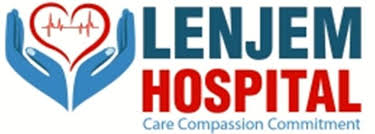







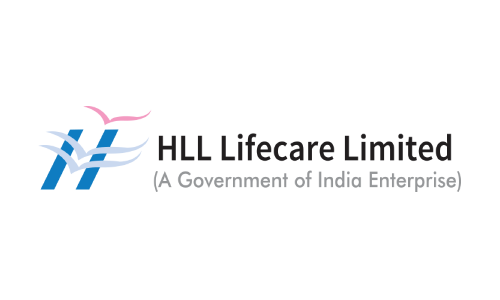




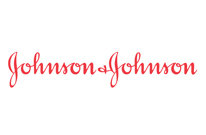


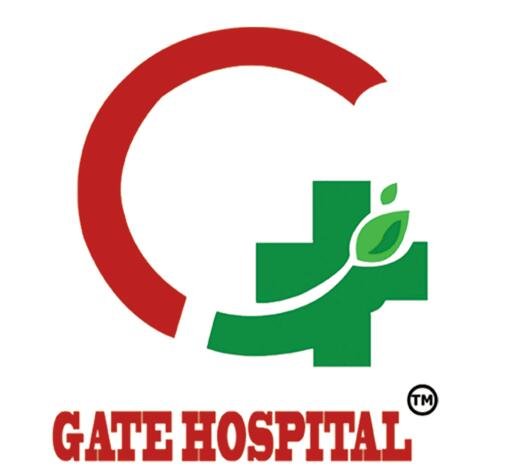







.png)
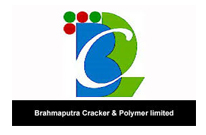

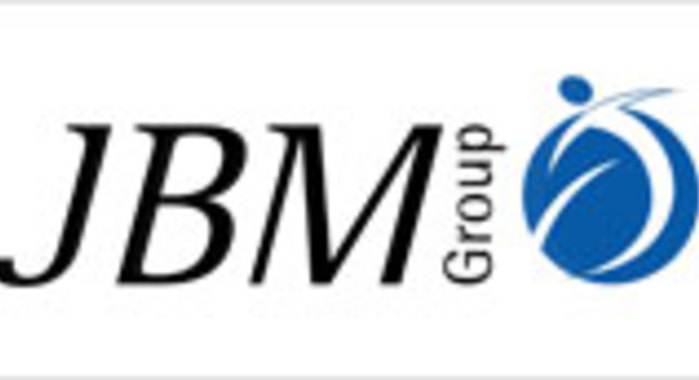
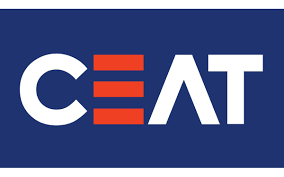




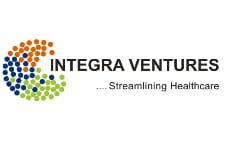









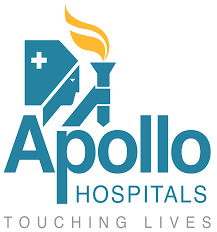





"I am a BBA student of 3rd semester. I hail from Bhutan. I vow that I am having a great experience i...
"AdtU is amazing. I am a BBA student of 2019-22 batch and I am just grateful for the amount of oppor...
Let us be grateful to the people and place who makes us happy. They are the charming gardeners whom ...
Currently I am pursuing MBA in Assam Down Town University. MBA is the professional course through wh...
AdtU is a university that focuses on giving knowledge, education and simultaneously making the stude...
The Assam downtown University has been a great learning experience. The university has provided me w...
My experience with AdtU has been splendid one indeed. Little needs to said about its scenic infrastr...
As a student I am very glad that I have got an opportunity to study here in Assam downtown universi...
My name is Sakhyajit Roy. I?m from Tripura. I joined the university on Auguest, 2017 as a student of...
I share immense pleasure to share my post graduate program experience in Assam down town University....
AdtU is a platform where I got golden opportunities to feed my zeal for knowledge through the dynami...
I am fortunate to get an opportunity to study here in Assam Downtown University. The best thing abou...
Our university is one of the best place for developing ourselves in the field of research and acedem...
ADTU is a university that is very good interms of infrastructure, academics and placements. Our tea...
It is one of best private colleges in North East India, it also provides a good environment for ed...
ADTU is a good University which provides the students with best quality lectures and ensures comfort...
The environment of Assam downtown university is very pleasant.The department of BMLT is very good a...
The university has all the necessary facilities and amenities for students . The classrooms and the ...
Assam downtown University is well recognised all over india. In the ongoing pandemic situation it ha...








